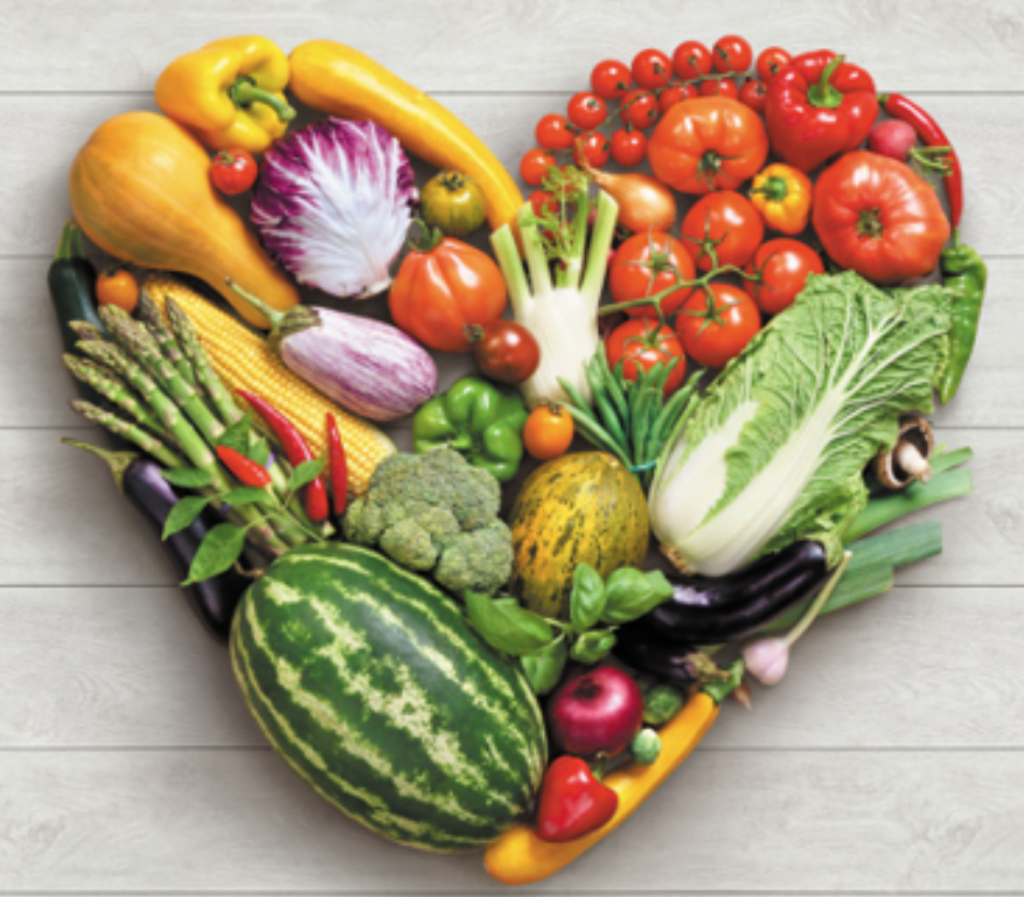ESRAG’s Renewable Energy Task Force strives to contribute to a global shift toward meeting our growing energy needs without the harmful environmental and climatic side effects of using fossil fuels. Clean energy projects like Habitat Solar and The Million Solar Panel Challenge provide ways to both encourage and acknowledge Rotary members’ efforts in this area.
Just as the use of clean energy is vital to our planetary health, fueling our bodies with whole plant foods provides the clean energy we need to support both our personal and planetary health. For example, burning fossil fuels can meet our energy needs but is a major contributor to the greenhouse gas emissions that are driving global warming and climate disruption. Eating animal foods can meet our personal energy (and nutritional) needs, but like fossil fuels, animal foods come with some harmful side effects.
Plant-Based Energy Sources

Plant-Rich Energy
Because animal-based protein (meat, dairy, eggs, fish/seafood) contains saturated fat, its overconsumption is associated with a variety of illnesses such as heart disease, type 2 diabetes, obesity, cancer, and more. In addition, industrial animal agriculture is pushing planetary boundaries beyond the breaking point and is a major contributor to biodiversity loss, deforestation, land and water use, pollution, and a host of other environmental problems.
According to the EAT Lancet report and many other credible sources, whole food plant-based eating can provide all the protein and other nutrients we need without the harmful personal and planetary effects associated with animal-based diets.
Transitioning to more plant-forward eating may seem as challenging as moving away from fossil fuel use, but as many have discovered, it can be done, and the effort is well worth it. My husband and I adopted a plant-based diet around the same time I was diagnosed with high cholesterol. When I returned for a re-check, my cholesterol levels had dropped in half, and the graph resembled a ski jump! Not only did I avoid having to take medication, but I also lost excess weight, and my energy level and overall health improved as well.
My fellow ESRAG Plant-Rich Diet Task Force colleague, Katherine Shegrud, shared, “After one year on a whole food plant-rich way of eating, I had my annual blood tests done. My doctor called and exclaimed, ‘How does it feel to be perfect?’ I feel great, my husband is back to his college weight and off his pre-diabetes medicine!”
My friend Tim shared, “I am eating less meat, in some part because I can’t afford it, and not only have I lost weight, but my bloodwork is stunning, so much so that my rheumatologist has decided I don’t need to see her that often. That is so amazing because a year ago I was still on two RA drugs: methotrexate and Actemra, a monoclonal antibody that is very, very expensive. I’m off Actemra now, but my inflammation markers are even better than when I was on it, and my cholesterol levels have also markedly improved. The main thing is I feel much better.”
What will be your plant-rich story?
For more information about the PRD Task Force or to share your own plant-rich experience, visit our webpage, https://esrag.org/plant-rich-diet/, email us at [email protected], like us on Facebook, Instagram, and take our 15-Day Plant-Rich Diet Challenge!

